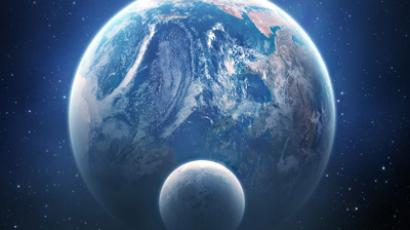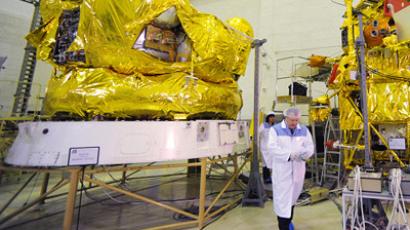Space evasion: debris threatens ISS
The International Space Station is preparing to perform an evasion maneuver to avoid a 10 cm fragment of a Russian rocket which will pass close to it on Thursday. The ISS will have to move some five kilometers higher to escape the threat.
“Observations show that a fragment of the Tsyklon-3 carrier rocket, which delivered the satellites Interkosmos-26 and Magion-3 into orbit back in 1991, will be passing the station on Tuesday night at a threateningly short distance,” the Russian mission control center said.The danger was detected in plenty of time and the trajectory of the debris was monitored to determine the risk of a collision. The latest calculations show that if an evasion is not made, the junk would pass within 350 meters of the station, which is deemed to be dangerously close. Mission control says the engines of the Russian module Zarya will be ignited for 169 seconds on Thursday evening, which will increase the station’s speed by 2.7 meters per second and raise its altitude by 4.7 kilometers.“After the correction the fragment will pass the station at the distance of some nine kilometers and will not pose a threat to the ISS and its crew,” the source assured, adding that this will make the regular orbit correction scheduled for October 6 unnecessary.
The space station is currently manned by three members of Expedition 29: NASA astronaut Mike Fossum, Japanese Satoshi Furukawa and Russian Sergey Volkov. Three more people are to join them in December.Space junk is an increasing threat to space exploration and will need to be tackled sooner or later. Some calculations suggest that the situation is already critical and could swiftly deteriorate. Cleaning the orbit of rocket and satellite debris is a complex task, which will require technical know-how and collaboration on the part of all space-faring nations.














